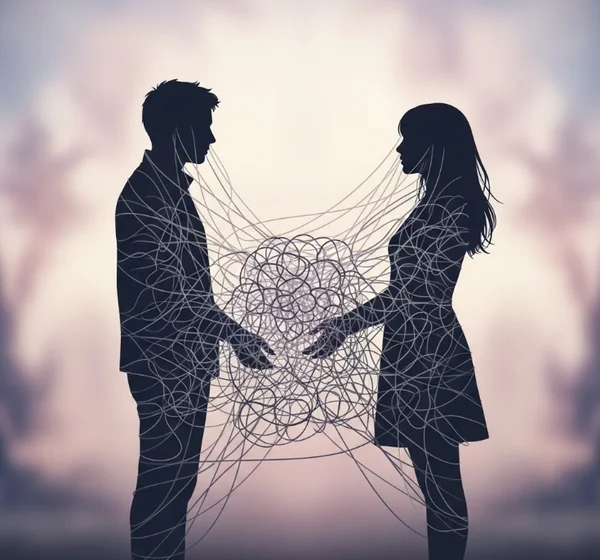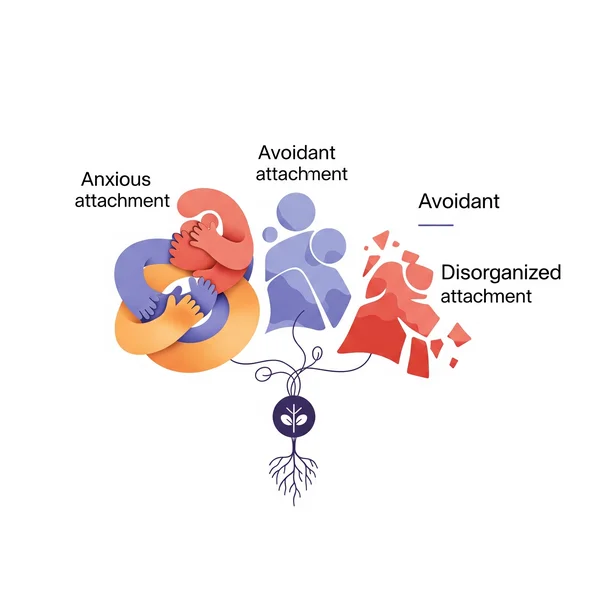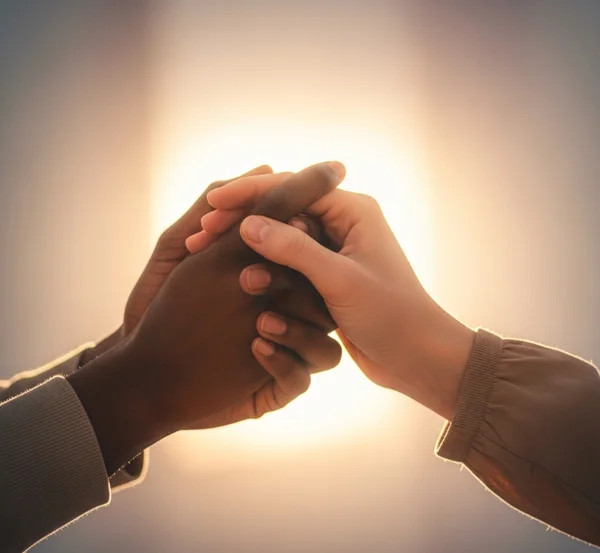Trauma's Impact on Relationships: Healing & Connection
June 22, 2025 | By Nora Hayes
Do your past experiences seem to cast a shadow over your current relationships? It's a common, yet often unspoken, reality that trauma affects relationships in profound ways. Whether stemming from childhood trauma or later distressing events, the impact can manifest as trust issues after trauma, difficulties with intimacy, or even recurring unhealthy patterns. How does trauma affect relationships? This article explores the common ways past trauma can influence your connections and offers initial steps towards healing and fostering healthier bonds. Understanding these dynamics, perhaps with insights from a free trauma test, is a crucial first step.

Common Ways Trauma Manifests in Relationships
The echoes of past trauma can reverberate through our interactions with partners, friends, and family. Recognizing these manifestations is key to understanding relationship trauma.
Difficulty with Trust and Intimacy (Key Relationship Trauma Signs)
One of the most significant signs of trauma in relationships is a compromised ability to trust. If past experiences involved betrayal or harm, building trust in new relationships can feel incredibly challenging. This often extends to difficulties with emotional and physical intimacy, as vulnerability can feel unsafe. Trust issues after trauma are a core component of relationship trauma.
Fear of Abandonment or Engulfment
Past trauma, particularly childhood trauma and relationships where caregivers were inconsistent or threatening, can lead to intense fears. Some may fear abandonment, constantly seeking reassurance, while others may fear engulfment, feeling suffocated by closeness and needing excessive space.
Challenges in Setting and Maintaining Healthy Boundaries
Understanding and asserting personal boundaries can be difficult for trauma survivors. Some may have overly rigid boundaries, pushing everyone away, while others may have porous boundaries, struggling to say "no" or protect their emotional space. Learning setting boundaries after trauma is a vital part of healing.
Repeating Unhealthy Relational Patterns (Trauma Bonding)
Individuals may find themselves unconsciously drawn to relationships that replicate dynamics from their traumatic past. This can sometimes involve trauma bonding, where an intense connection forms in the context of abuse or dysfunction. Recognizing these trauma symptoms in your relationship patterns is important.
Communication Breakdowns and Conflict Escalation
Trauma can impact communication styles, leading to misunderstandings, difficulty expressing needs, or heightened reactivity during disagreements. Conflicts might escalate quickly, or conversely, be avoided at all costs due to a fear of confrontation.
How Childhood Trauma and Complex PTSD Shape Adult Relationships
The foundations for our adult relationships are often laid in childhood. Experiences of childhood trauma or living with complex PTSD relationships in formative years can have a lasting impact.
Impact on Attachment Styles
Early interactions with caregivers shape our attachment styles – the way we connect with and relate to others. Trauma can disrupt the development of secure attachment, leading to insecure styles (anxious, avoidant, or disorganized) that influence adult romantic relationships and friendships. An online trauma assessment might not directly measure attachment, but understanding underlying trauma can shed light on these patterns.

Distorted Perceptions of Self and Others in Relationships
Trauma can lead to negative core beliefs about oneself (e.g., "I'm unlovable," "I'm not good enough") and distorted perceptions of others (e.g., "People can't be trusted," "Everyone will eventually leave"). These perceptions heavily influence interactions within complex PTSD relationships.
The Echo of Past Trauma in Present Interactions
Current relationship dynamics can inadvertently trigger unresolved trauma. A partner's tone of voice, a specific situation, or even a moment of vulnerability can activate old wounds, leading to disproportionate emotional reactions or a re-enactment of past relationship trauma.
Recognizing the Signs: Could Trauma Be Affecting Your Connections?
How do you know if trauma is affecting your relationships? It often involves a pattern of recurring difficulties or intense emotional reactions that seem out of proportion to the present situation.
Self-Reflection: Questions to Ask Yourself About Your Relationship Patterns
Consider these questions:
- Do I consistently struggle with trust in my relationships?
- Do I fear intimacy or, conversely, become overly dependent?
- Do I find it hard to set or maintain boundaries?
- Do I often find myself in relationships that feel familiar to past negative experiences?
- Do conflicts frequently escalate or leave me feeling overwhelmed?
How a Trauma Test Can Offer Preliminary Insights
While a general trauma test doesn't specifically diagnose relationship trauma, it can help you identify underlying trauma symptoms (like anxiety, depression, trust issues, emotional dysregulation) that are known to impact relational functioning. Understanding these broader symptoms through a free trauma test can be a valuable piece of the puzzle.

Steps Towards Healing Relationship Trauma and Fostering Healthier Bonds
Can relationship trauma be healed? Yes, with awareness, effort, and often professional support, it is possible to heal from relationship trauma and cultivate more fulfilling connections.
Acknowledging the Impact of Past Trauma
The first step is recognizing and validating how past experiences may be influencing your present relationships. This isn't about blame but about understanding.
Developing Self-Compassion and Self-Awareness
Treat yourself with kindness as you explore these sensitive areas. Increasing self-awareness around your triggers, emotional reactions, and relational patterns is crucial for healing relationship trauma.
Learning and Practicing Healthy Communication Skills
Effective communication is vital for any healthy relationship. This includes learning to express your needs clearly, listen actively, and manage conflict constructively.
Establishing and Respecting Boundaries
Learning to set and enforce healthy boundaries is fundamental, especially if you have trust issues after trauma. This involves understanding your limits and communicating them respectfully.
Seeking Professional Support: Individual or Couples Therapy
For many, professional help is invaluable. A therapist specializing in trauma can help you process past experiences, understand their impact on your relationships (including complex PTSD relationships), and develop new, healthier ways of relating. Couples therapy can also be beneficial if both partners are committed to healing.

Healing from Relationship Trauma is Possible: Start Your Journey
The impact of trauma on relationships can be profound, but it doesn't have to be a life sentence. By understanding how trauma affects relationships, recognizing the signs in your own life, and taking steps towards healing relationship trauma, you can build a future with more secure, fulfilling, and authentic connections. Consider exploring your own patterns with a trauma assessment on TraumaTest.org.
What have you found to be the most challenging aspect of trauma's impact on relationships, or what has been most helpful in your healing journey? Share your general thoughts and experiences in the comments below (please maintain privacy). Your story might resonate with and support others.
Trauma's Impact on Relationships: Your Questions
-
Can trauma make you afraid of relationships?
Yes, past relationship trauma or other traumatic experiences can lead to a fear of intimacy, vulnerability, and commitment, making new relationships feel threatening or unsafe. This is a common way trauma affects relationships.
-
How do trust issues after trauma affect new partnerships?
Trust issues after trauma can lead to suspicion, difficulty opening up, constant checking on a partner, or an inability to believe in a partner's good intentions, significantly straining new partnerships.
-
What is trauma bonding and how can I break the cycle?
Trauma bonding is a strong emotional attachment between an abused person and their abuser, formed due to a cycle of abuse and intermittent reinforcement. Breaking the cycle often requires recognizing the pattern, seeking professional support to understand the dynamics, building self-esteem, and learning to establish healthy boundaries.
-
Does everyone with childhood trauma have relationship problems?
Not necessarily. While childhood trauma and relationships in adulthood are often linked, resilience, support systems, and later positive experiences can mitigate the impact. However, it is a significant risk factor for relationship difficulties.
-
Can a trauma test help me understand my relationship patterns?
A general trauma test, like the free trauma test available on our website, can help identify underlying trauma symptoms that often contribute to unhealthy relationship patterns (e.g., anxiety, depression, difficulty with emotional regulation, trust issues). While not a specific "relationship trauma test," the insights gained can be very helpful in understanding why certain relational difficulties might be occurring.